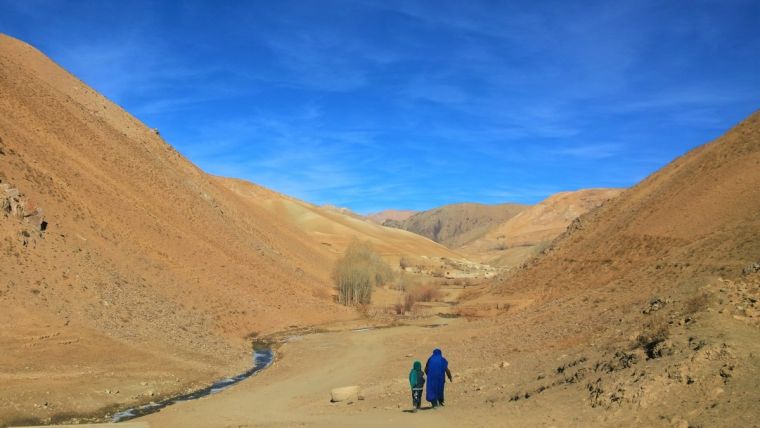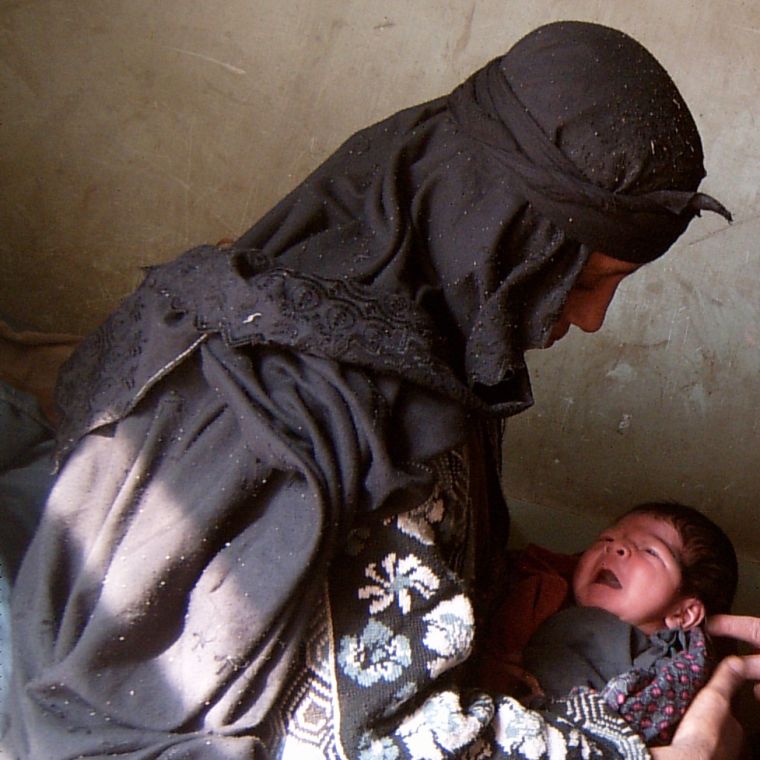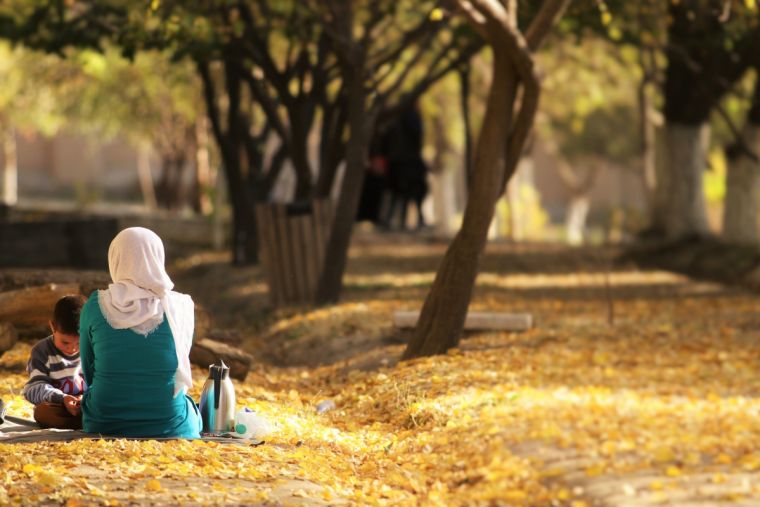In Afghanistan, more than 1 in 10 babies die at birth. Here's why – and how it can change
The mountains in Afghanistan are breathtaking. Red, gold, and rusty orange soils swirl together in giant ridges, pressed against a brilliant blue sky. It looks unreal – a beautiful painting. But, as with all art, it's important to look beneath the surface for truth. Beneath the beauty in Afghanistan, there is a country where babies and mothers are dying.

Afghanistan currently has the worst infant mortality rate in the world, with 112 babies dying in every 1,000 births. It also has one of the worst maternal mortality rates in the world, ranking 11th on a list of the 200 most dangerous countries to be a mother. A blend of poor access to health care, unsafe birthing practices and cultural barriers all contribute to these devastating statistics. And beneath the numbers, there are human stories of pain and loss and hopelessness.
UK-based Christian charity BMS World Mission is helping to run a training programme in the mountains of rural Afghanistan to educate men and women about safe birthing practices.
Most of the people BMS is helping are at least one hour away from a clinic by 4x4, and most people don't have access to that kind of transport. Understanding pregnancy and birth better can be crucial for the survival of both the baby and mum. 'In a rural area like this that's so remote, they don't have access to good health care,' says Tim*, a BMS development worker in Afghanistan. 'It's really important to tell people the danger signs that they need to look out for so they will be prepared in case they are unable to make it to a clinic.'
A big part of our training is dispelling some of the unsafe birthing practices that are common in Afghanistan. Making women give birth in the dirtiest room in the house, pushing on their stomachs during labour to make the baby come out and smearing animal dung on the umbilical cord after it's cut are just a few of the dangerous traditions that can lead to infection and even death. 'It's not just about saying, "This is wrong,"'says Tim. 'It's more about saying 'this is safe, this is what you can do."'

Knowing what to do if a woman is bleeding after labour or if a baby isn't breathing and how to stay healthy during a pregnancy are all covered by the BMS-supported courses, and have already saved lives.
And by making men part of the training, more lives will be saved. 'Maternal health is seen as a woman's business in Afghanistan,' says Tim. 'But it's actually men that are making the decisions.' Educating men about safe birthing practices is often vital to survival. Tim remembers one woman who came to the course but whose husband did not. Having been on the course, she knew she should call for medical help when something went wrong with her labour. But her husband said it was best to just pray, and that it was in God's hands. The woman ended up dying.
There are many sad stories like that in Afghanistan, but health education, made possible by donations from UK Christians, is paving the way for a safer future for babies and mothers in remote mountain villages. Now, 100 per cent of the women who receive training breastfeed their babies within the first hour of giving birth. Before the training only 50 per cent of them did. Take-up of antenatal care has also improved. Before attending the course only 11 per cent of women were having regular antenatal check-ups and now 52 per cent of them are receiving the care they need.
Thanks to people like you, many babies and mothers are getting a chance to live, and the blessing can be passed on to future generations.

At the end of one of the courses an Afghan grandmother named Aliah* pulled a trainer aside. Through tears she explained why this course was so important. Her own daughter had died during childbirth. Facing complications during labour, her family had tried everything – they prayed, offered sacrifices, performed traditional rites, but still she died. 'That's why I'm bringing my granddaughter to this course,' Aliah told a BMS-enabled trainer. 'I don't want the same thing to happen to her. I don't want her children to live life without a mother like she had to.'
Beneath the surface, Aliah had a real sense of guilt about her daughter's death. 'If only I had known then what I know now,' said Aliah. Today she is more hopeful, and her granddaughter has a far better chance of a healthy labour and childbirth. BMS wants to see more mothers have the same hope.
*Names have been changed.











